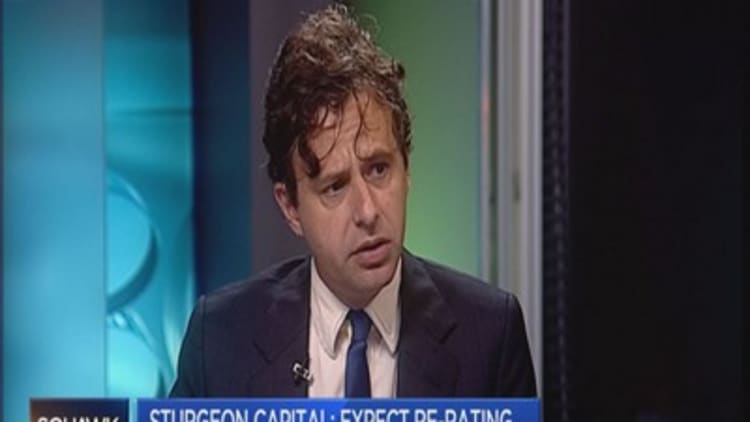
Iran will see a substantial re-rating of its assets along the same lines as post-Cold War Russia, one investment company has told CNBC.
Sturgeon Capital, which hopes to launch Iran's first multi-asset fund after sanctions are lifted, says both foreign investors and expats are eager to enter the market. They estimate over $100 billion will be repatriated once the sanctions are lifted, adding to a "substantial re-rating" across asset classes, according to the firm's fund presentation.
It will like going back to Russia right after the Cold War and buying Gazprom right from the start, Sturgeon Capital Founder and CIO Clemente Cappello told CNBC's Squawk Box Europe Tuesday.
Investors will want to aim for a mix of both "mega, state-owned monopolies" and small caps, he explained.
"Over the short term it's great to invest in the national champion and hope for a re-rating," Cappello said. But longer term, significant re-ratings will be seen across Iran's "well-managed, smaller, consumer related companies."
In Russia for example, the real value would be found in companies like Yandis — the regional answer to Google — or Magnit, a supermarket chain that Cappello says is "well-managed, independent from politics" and trades at a very high multiple.
Cappello says there are similar companies in Iran that would make good investments.
While many see promise in Iran's bumper oil and gas reserves, Cappello says the energy sector should be left to producers who can provide the capital, know-how and technology that will get the industry going.
"That's something more for oil majors than for investors."
Major global powers including Germany, the U.S., and Russia secured a deal with Iran mid-July that promised to ease long-standing sanctions on the country in exchange for reforms to its nuclear program.
It's not yet clear when sanctions will be fully lifted, though an statement released by a U.S. Treasury Department official this week estimated that it would take Iran six to nine months to fulfill conditions that would prompt easing by the U.S.
However, Some companies like those with links to Revolutionary Guards — an elite military and industrial force in the country — could face sanctions for years to come, according to Reuters.
Sturgeon Capital, meanwhile, expects an ease of sanctions towards the end of the year, and a "gradually lifting" thereafter.
"The deal faces a lot of opposition...but it's one of those historical deals like the opening of China with Nixon and Kissinger," Cappello said.
"Longer term I think it will be very positive, it will empower the moderates in Iran and it will be good for the world."




